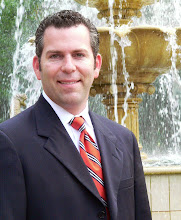
I heard Josh McDowell speak at Regent yesterday and his message struck a chord with me. http://tinyurl.com/clbczk The message was simple and straightforward...relationships matter. More specifically, a father's love of his children can transform their lives in astonishing ways. The corollary of course is true- the absence of love in a relationship can result in rebellion. Josh has long been known for this message, often stating "Rules without relationship leads to rebellion." He restates it helpfully, "Truth without relationship leads to rejection."
This relates to teaching kids responsible sexual behavior http://joshmcdowellmedia.org/FreeBooks/HowtoHelpYourChildSayNo.pdf
but I thought of it in connection with the academic endeavor. Where else do young people get such a massive injection of truth? The Christian academic context can often turn an anxious eye to the encroaching world, and in response, "dump the truck" of truth. Parents and teachers or youth leaders and college ministries can erect massive barriers of doctrine and approved behaviors only to find their students slipping under the fence to "greener grass" of wordly behavior. Is the answer better curriculum? Josh suggested that fundamentally, relationships underlie all of our behaviors, values and beliefs. If we want to see true life change in our students, we must risk personal involvement. We must love.
To be sure, today's litigious society makes personal involvement with students problematic. Appropriate boundaries should be observed. For instance, every teacher knows to observe proper physical boundaries (good touch, bad touch) but what about in cyberspace? Can or should a campus minister connect with students on Facebook or Twitter? If so, how much? Can these natural arenas of student connection be used for Christian love and encouragement? I think so--but what are appropriate limits?
To explore the thought further, I recall those teachers and pastors who made the most impact on my life were the ones who went beyond the classroom and made room for me in their lives. I think of lunches and hikes and simple family time that were the true classrooms where I studied. How does a husband respond to his wife? What does appropriate discipline look like? How does one say "no" without hurting feelings? All these lessons went beyond the classroom to personal discipleship and mentoring. I feel that I owe a huge debt to men like Bill Warrick, Dick Woodward, David Holmes, Harold "OJ" Brown, J. Rodman Williams, Joseph Umidi. They invested in me far more than truth--they dared to love me even in my immaturity and brash bravado.
So for what it's worth, I'm trying to give back. To share truth in relationship. What about you? Who invested in you? And then in turn, who are you sharing your life with that they might grow to be all God created them to be? That's what Josh was talking about, and I pray it resonates with us all.






